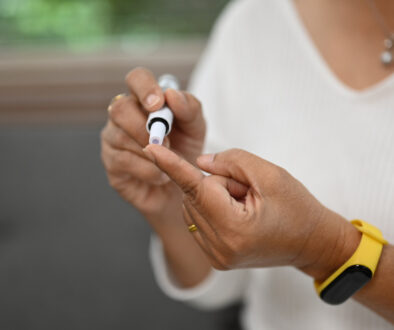We Bust The 5 Biggest Colonoscopy Myths
Colon cancer begins as a polyp, and that’s why colonoscopies are so important for detecting—and removing—these polyps. By doing so, it dramatically reduces your chances of getting colon cancer. Up to 40 percent of American adults have polyps.
Sadly, many myths and misconceptions have kept many adults from having a screening colonoscopy where these polyps can be detected and removed.
We’re going to bust the 5 biggest myths, give you the facts about colonoscopies, and provide information on how to schedule one.
The 5 Biggest Colonoscopy Myths
1. MYTH: Colonoscopies are painful.
FACT: Colonoscopies are NOT painful. In fact, most patients don’t even remember having one! You are sedated during the entire procedure, and our patients do not report any pain.
2. MYTH: The bowel prep is horrible.
FACT: Many patients dread the bowel prep because of the large amount of solution that they must drink. In some cases, they may dread it more than the colonoscopy itself!
The fact is patients report that it is very manageable. There are also better-tasting bowel preps than those which have been typically used in the past.
3. MYTH: I don’t need a colonoscopy unless I show signs of colon cancer.
FACT: In its earliest stages, colon cancer does not show any symptoms.
It’s important to treat cancer as early as possible, when it’s in its most “beatable” stage. By the time you experience symptoms, the colon cancer has already progressed. This is why a colonoscopy is still your best option for colon cancer prevention.
4. MYTH: Women don’t need to have regular colonoscopies.
FACT: While men do have a slightly higher risk of colon cancer than women, it’s still important that women have regular colonoscopies to check for cancer. In fact, colon cancer is the second most common cancer diagnosed in the U.S. (excluding skin cancers).
According to the American Cancer Society, the lifetime risk of developing colon cancer for men is 1 in 23, while for women, it’s 1 in 25. This indicates that women are still at risk of colon cancer and should have regular colonoscopies.
Would you like to know more about your risk factors for colon cancer? Take our useful quiz to find out.
5. MYTH: Colonoscopies are dangerous.
FACT: A colonoscopy is a very safe medical procedure. Some are concerned because of the slight risk of colon perforation. In actuality, this occurs in only far less than 1 in 1,000 of patients. That’s less than one percent.
A Colonoscopy Is the Gold Standard in Colon Cancer Prevention
While there are other tests for colon cancer, such as Cologuard, many of these tests have difficulty detecting polyps when they are in their earliest stages, which is when they are easiest to remove. If your Cologuard test is positive you will need to schedule a colonoscopy.
False positives can also be common with these tests. For example, if you have hemorrhoids, the test will detect blood in your stool.
When Should You Have a Colonoscopy?
While there are some general guidelines, there are some variations depending upon your family history and results of any earlier colonoscopies.
If you’re at average risk of colon cancer, we recommend that you have your first colonoscopy when you’re 45 years old and then once every 10 years after that.
If you have an elevated risk, when you should be screened again depends upon whether or not you’ve had abnormal screenings in the past. We also consider whether or not you’ve had any relatives that have developed colon cancer.
We realize that every situation is different, and we’ll work with you to determine the best course of action.
RMG Gastroenterology: Providing Safe, Effective Colonoscopies for Decades
Myths are dangerous, especially colonoscopy myths. They can keep someone from getting the health care they need and deserve. When it comes to detecting colon cancer, delaying screenings can put you at greater risk.
A colonoscopy remains the best, most effective way to detect polyps before they can develop into cancer.
If you’re 45 and have never had a screening—or if you’ve been putting off your colonoscopy—we want to hear from you. Contact us to schedule an appointment.



